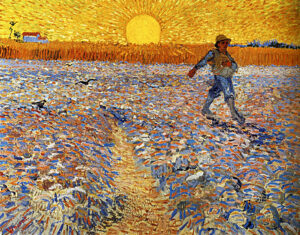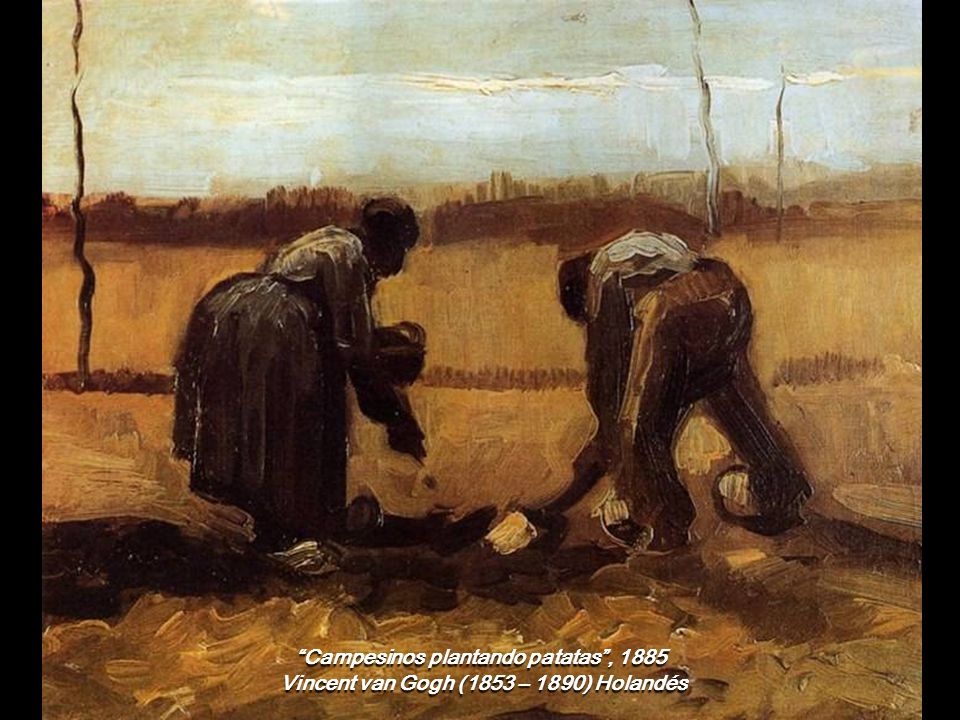|
You
can also view the message online
|
|||||||||||||||||||||||||||||||||||||||||||||||||||||||||||||||||||||||||||||||||||||||||||||||||||||||||||||||||||||||||||||||||||||||||||||||||||
 Châtenay-Malabry (FR - 92290), 8 February, 2021 EFITA newsletter / 971 - European Federation for Information Technology in Agriculture, Food and the Environment Do not miss the Virus Jokes in English and French > Coronavirus 4 Coronavirus 3 Coronavirus 2 Ant joke Coronavirus 1 > Virus et autres sujets Virus 6 Virus 5 Virus 4 Virus 3 Virus 2 Virus 1 > Les dernières histoire de l'oncle Paul (Jamet) (mostly in French) > Les dernières histoires de Georges Larroque (mostly in French) > Les dernières histoires de Michel Gil-Antoli (mostly in French) > Les dernières histoires de Jean Pinon et Luc Becker (mostly in French) > Et encore... et encore, encore The informatique-agricole.org site now offers you the possibility of subscribing the RSS feeds of its two newsletters See RSS feeds to implement to ensure that you continue to receive this newsletter To unsubscribe this newsletter, please contact me directely: guy.waksman(a)laposte.net if this link Unsubscribe does not work. Please note that I changed the presentation of the links that are embedded in the name of the web service. 
To correspond with me (GW), please use this address: guy.waksman(a)laposte.net To subscribe the efita newsletter (please ask your friends and colleagues to test this link) Efita Newsletters subscription Weekly newsletters about ICT in Agriculture in English and French Both newsletters have around 14000 subscribers. >>> Last weekly EFITA Newsletters in English (created in 1999) Efita Newsletters >>> Last weekly AFIA Newsletters in French (created more than 20 years ago in 1997) Afia Newsletters >>> Statistics for the last efita newsletter >>> Last issue of the afia newsletter >>> Last available satistics for the afia newsletter A thought for today Everybody knows if you are too careful you are so occupied in being careful that you are sure to stumble over something. Gertrude STEIN, novelist, poet, and playwright (1874-1946) Excess deaths since country or city’s first 50 covid deaths - Last updated on February 2nd
Natural The Science of Reasoning With Unreasonable People By Adam Grant Don’t try to change someone else’s mind. Instead, help them find their own motivation to change. When we try to change someone’s mind, Grant explains, we often end up accusing our opponent of being wrong. “Yet experiments show that preaching and prosecuting typically backfire — and what doesn’t sway people may strengthen their beliefs,” he writes. The problem is to not activate what Grant describes as antibodies “against future attempts at influence.” A better approach, he says, is to interview someone about the beliefs that differ from yours, “asking open-ended questions and listening carefully — and holding up a mirror so they can see their own thoughts more clearly.” See NTY How to Argue on the Internet Without Losing Your Mind Avoid the murky waters of trolldom. .../... Stop if you’re in a bad mood Before you hit send, take a second to check your emotional state. “When in a bad mood, refrain from posting,” Dr. Leskovec suggested. “Breathe in and breathe out.” He added that it’s important to stop when you can see that the argument has become toxic, because it will only get worse from there. “Prevent downward spirals. Don’t participate in toxic discussions. Nothing good will come out of it,” he said. See NYT Legal framework for autonomous cropping equipment – Status quo and economic analysis 17 February 2021 - 15:00-16:00 CET - Virtual To start off the new year, we would like to invite you to an English-language lecture as part of our “digital workshop talks“-series. Under the direction of Prof. James Lowenberg-DeBoer (Harper-Adams University, United Kingdom) and as part of a European team of authors, the Digitilization division of the Institute for Agricultural Engineering and Animal Husbandry at the Bavarian State Research Center for Agriculture contributed to a paper about the legal background of field crop robots. The paper further presents the economic, farm level consequences of such regulation. During the “digital workshop talks“ on 17 February 2021 (time: 15:00-16:00 CET), Professor Lowenberg-DeBoer will provide first insights into the findings You can register until February 15 by sending an e-mail. We look forward to your participation! Contacts: Olivia SPYKMAN and Markus GANDORFER Digital Farming Group Institute for Agricultural Engineering and Animal Husbandry, Bavarian State Research Center for Agriculture E-mail: Markus.Gandorfer(a)lfl.bayern.de Biopesticides Europe 2021 conference 9 - 10 June 2021 - russels, Belgium See biopesticides-europe
Yield+: The future of corporate agriculture is digital - Sensing+ is an end-to-end system for large-scale growing operations, combining sensors, data analytics and apps. - The Yield is your partner in digital transformation. Leverage the power of our platform to put your data to work, and create insights that drive better commercial outcomes. See theyield.com New in Sensing+ (The Yield Technological Solutions – Australia) > Change to ETo Calculation in Sensing+ > Rain Likelihood Notifications > 14-Day Gridded Weather Forecasts Enhancement > PAR, EC & Soil Moisture > Block Selector Nothing is more responsible for the good old days than a bad memory: Semeur au soleil couchant, 1888, par Vincent Van Gogh, Collection Emil Bührle, Zurich How did we the future yesterday?? See the incredible collection developed by Alain Fraval Nothing is more responsible for the good old days than a bad memory: Hiver : les Fagoteuses, ca. 1868-1875, par Jean-François Millet,
Israeli start-up launches artificial pollination technology Israeli agri-tech startup Edete Precision Technologies for Agriculture is due to begin commercial scale field trials of its artificial pollination technology in almond orchards covering dozens of hectares in the Australian state of Victoria. See futurefarming.com Drone harvesting: Kubota invests in fruit picking drones company Tevel Kubota participates in a Series B venture funding investment round totalling $20 million for Tevel. See futurefarming.com Carbon storage: AGCO launches studies on cover crops for carbon management Best practices for regenerative agriculture to optimise soil health and carbon capture determined. See futurefarming.com Data: AEF and AgGateway to enable seamless data flow for growers Growers to rapidly access and use information to improve on-farm productivity and sustainability. See futurefarming.com Weed control systems: crop.zone electric weeding available in Switzerland Swiss farmers will have the opportunity to try out the new technology under real conditions. See futurefarming.com Business: Farmers Edge partners with Google Cloud Farmers Edge and Google Cloud to deliver next generation of high-tech tools to farmers. See futurefarming.com Nothing is more responsible for the good old days than a bad memory: Sower by Vincent van Gogh Controlled environment agriculture. We’re farming for the future. See appharvest.com AppHarvest completes SPAC merger to go public at $1bn+ valuation, AFN, by Jack Ellis - Controlled environment agriculture (CEA) startup AppHarvest has gone public after completing a reverse merger with Novus Capital, a NASDAQ-traded special purpose acquisition company (SPAC). - The Kentucky-based indoor farming firm’s shares began trading on New York’s NASDAQ on February 1 under the ‘APPH’ ticker. - AppHarvest’s stock price soared 44% on the company’s debut, according to MarketWatch. See agfundernews.com Nothing is more responsible for the good old days than a bad memory (?????): Semeur par Vincent Van Gogh, Van Gogh Museum Solinftec & IBM partner to raise standards of agriculture digitalization AgFunder portfolio co! Farm Journal (feat. Britaldo Hernandez & Daniel Padrão) IBM and Solinftec, a leading agricultural platform, are bringing new precision solutions to agriculture around the world. IBM’s unparalleled climate-based insights are now being paired with Solinftec’s sophisticated algorithms and artificial intelligence to provide real-time decision-making solutions for agriculture. Through this partnership, Solinftec utilizes local weather data and forecasting from The Weather Company, an IBM Business, to deliver digital agricultural solutions that leverage operational efficiency, use of inputs and agriculture compliance, ultimately reducing environmental impacts. See thedailyscoop.com Organic Valley pilots satellite-backed grazing management to improve pasture management, AFN, by Lauren Manning - Farmer-owned US dairy cooperative Organic Valley is piloting a new satellite photography tool to provide real-time feedback about pasture health and nutrition on its farms. - If successful, the tool will be scaled to all Organic Valley operations during 2022. The co-op says its farmers have over 189,000 acres of pasture under management. - Organic Valley — which describes itself as a champion of regenerative agriculture — markets its cows as spending more time outside grazing than 95% of dairy animals in the US, making pasture health a priority. See agfundernews.com Nothing is more responsible for the good old days than a bad memory: Campesimos plantando patatas, 1885, Vincent Van Gogh (1853-1890) How Australian agriculture can continue to succeed in 2021, AFN, by guest contributor: Justin Webb Without exception 2020 has thrown unique challenges at Australian agriculture. Admirably, and equally without exception, our farming communities have proven to be remarkably resilient. Faced with catastrophic bushfires at the beginning of the year, the myriad disruptions caused by Covid-19, collateral damage from international geopolitical events, and the ever present threat of drought – time and time again, Aussie farmers have kept our nation fed and maintained Australia’s position as a leading global exporter of premium produce. …/… See agfundernews.com CSIRO, Woolworths unveil FutureFeed, a seaweed supplement that cuts cow methane by 80% (AFN) See agfundernews.com DR. Rattan Lal on soil health, plant science and food security See croplife.org Virginia Tech researchers find that removal of dairy cows would have minimal impact on greenhouse emissions The removal of dairy cows from the United States would only slightly reduce greenhouse gas emissions while reducing essential nutrient supply, Virginia Tech researchers say. See vtnews.vt.edu Two Biden priorities, climate & inequality, meet on black-owned farms, The New York Times, by Hiroko Tabuchi & Nadja Popovich (source AFN) See NHT Agriculture may be ‘first & best place’ for climate gains, says nominee Vilsack, Successful Farming, by Chuck Abbott (source AFN) The Biden administration will work with farmers, ranchers, and forest owners “to create new sources of revenue tied to their good climate practices,” said agriculture secretary-nominee Tom Vilsack on Tuesday. With USDA’s broad authority to aid farmers, he said he could launch carbon sequestration initiatives that soon would become a standard part of the federal farm program. “I think agriculture is probably the first and best place to begin getting some wins in this climate area,” said Vilsack during a confirmation hearing. “Farmers are prepared for it. Farmers are anxious to do it. If it’s voluntary, if it’s market-based, if it’s incentive-based, I think you will see farmers, ranchers, and producers cooperate extensively.” See agriculture.com Why do academics in the Global North focus on Burkina Faso’s problems with GMOs? By Joseph Opoku Gakpo See allianceforscience.cornell.edu European Soil Data Centre Newsletter No.127 (Jan-Feb. 2021) See jrc.ec.europa.eu US: Corn and soybean production up in 2020 See agdaily.com We have more land for forests than we did 30 years ago! (I am not that sure. Have you an idea about this subject? – GW) This episode is an excerpt from the book Ten Global Trends Every Smart Person Should Know. See reforestation Nothing is more responsible for the good old days than a bad memory: Gleaners by George Clausen
Multilateral Cooperation for Global Recovery, by Emmanuel Macron, Angela Merkel, Macky Sall, António Guterres, Charles Michel, Ursula von der Leyen We should not be afraid of a post-pandemic world that will not be the same as the status quo ante. We should embrace it and use all appropriate fora and available opportunities to make it a better world by advancing the cause of international cooperation. We need to ensure that the global recovery reaches everybody. That means stepping up our support to developing countries, particularly in Africa, by building on and going beyond existing partnerships such as the G20’s Compact with Africa and its joint effort with the Paris Club within the Debt Service Suspension Initiative. It is crucial to further support those countries in reducing their debt burden and ensure sustainable financing for their economies, using the full scope of international financial instruments such as the International Monetary Fund’s reserve asset, the special drawing rights (SDRs). The rise of new technologies has been a great asset for progress and inclusion, contributing to the openness and resilience of societies, economies, and states, while proving lifesaving during the pandemic. Yet, almost half the world’s population – and more than half the world’s women and girls – remain offline and unable to access their benefits. See project-syndicate.org
Mueller: Two Modest Predictions from 1997, By John Mueller In 1997, John Mueller predicted that the world would soon experience massive gains in economic growth and well-being, but that the general public would be unimpressed. See humanprogress.org Heroes of Progress (8) William Wilberforce: The Man Who Helped to End Slavery See video (9) Richard Cobden: The Man Who Helped Turn Britain into a Free-trading Nation See video (10) Barré-Sinoussi & Montagnier: The Scientists Who Discovered That HIV Is the Cause of AIDS See video (11) Maurice Hilleman: The Man Who Developed Over 40 Vaccines See video An interesting info about different “Stuffs of progress” 1: Nitrogen 2: Iron 3: Tungsten 4. Silicon 5: Chemical Pesticides 6: Rubber GE Foods 8: Disinfectants 9: Aluminum 10: Synthetic Pharmaceuticals 11: Crude Oils 12: Uranium 13: Sand 150 US Highly Successful Companies Started During a Recession With unemployment claims at historic highs and consumer confidence at historic lows, the COVID-19 pandemic has caused untold damage to the global economy. The current economic downturn may discourage some would-be entrepreneurs from starting their own businesses, but history shows that a great business concept can succeed in any environment. Using data from SEC filings, Fortune magazine, and the National Bureau of Economic Research, we found that many of the largest, and most successful companies in the world were started during times of recession. See businessfinancing.co.uk Hungarian doctors can’t recommend Russian, Chinese jabs, By Vlagyiszlav Makszimov / euractiv.com Without making public the documents related to the authorisation of the Russian Sputnik-V and Chinese Sinopharm vaccines – especially the summary of product characteristics – the leadership of the Hungarian Medical Chamber “cannot recommend the use of these products to its colleagues in good conscience,” the doctors wrote to the Hungarian National Institute of Pharmacy and Food and Health (OGYÉI) on Tuesday. See euractiv.com The left’s vaccine problem (is it because the left is afraid by anti-vax people in a context where some leftist people are anti-vax as well as "anti-system" ? - GW) Early in the pandemic, countries with populist, right-wing governments were suffering some of the worst outbreaks. These countries had big differences from one another — the list included Brazil, Britain, Russia and the U.S. — but their problems all stemmed partly from leaders who rejected scientific expertise. More progressive and technocratic countries — with both center-left and center-right leaders, like Australia, Canada, Denmark, Germany, Japan, New Zealand and South Korea — were doing a better job containing the pandemic. The pattern seemed to make sense: Politicians who believed in the ability of bureaucracies to accomplish complex jobs were succeeding at precisely that. But over the last few weeks, as vaccination has become a top priority, the pattern has changed. Progressive leaders in much of the world are now struggling to distribute coronavirus vaccines quickly and efficiently. .../... Why? A common problem seems to be a focus on process rather than on getting shots into arms. Some progressive leaders are effectively sacrificing efficiency for what they consider to be equity. The European Union has taken a ponderous, risk-averse approach that tries to avoid upsetting its member countries. See NYT Make me a sandwich My husband and I were daydreaming about what we would do if we won the lottery. I started: “I’d hire a cook so that I could just say, ‘Hey, make me a sandwich!’” Thomas shook his head. “Not me. I already have one of those.” The distribution of this efita newsletter is sponsored by vitisphere.com Please, contribute to the content of your efita newsletter, and advertise your events, new publications, new products and new project in this newsletter. Without your support, it will not survive! Contact: Guy WAKSMAN E-mail: guy.waksman(a)laposte.net To read this newsletter on our web site See Afia The archives of this newsletter See Afia About the EFITA mailing list You can use the efita moderated list (> 15000 subscribers) to announce any event / product / web site / joke (!) related to IT in agriculture, environment, food industry and rural areas. If you want to subscribe a friend, please fill in his form. If you do not wish to receive our messages, please fill in the following form... |











